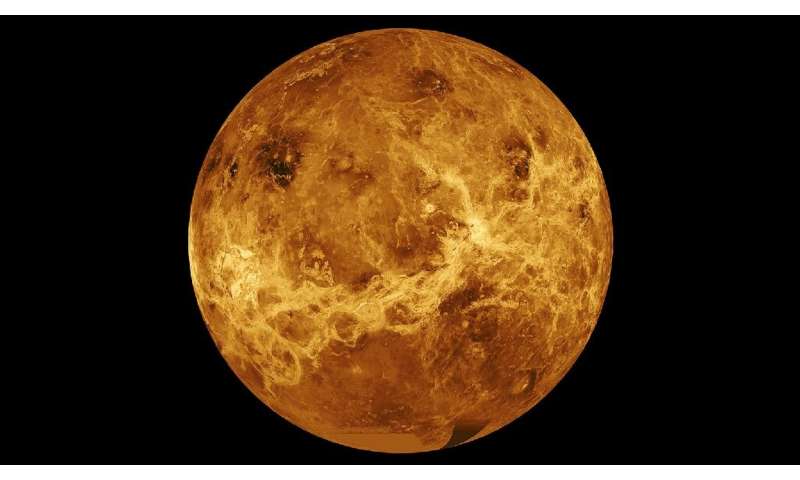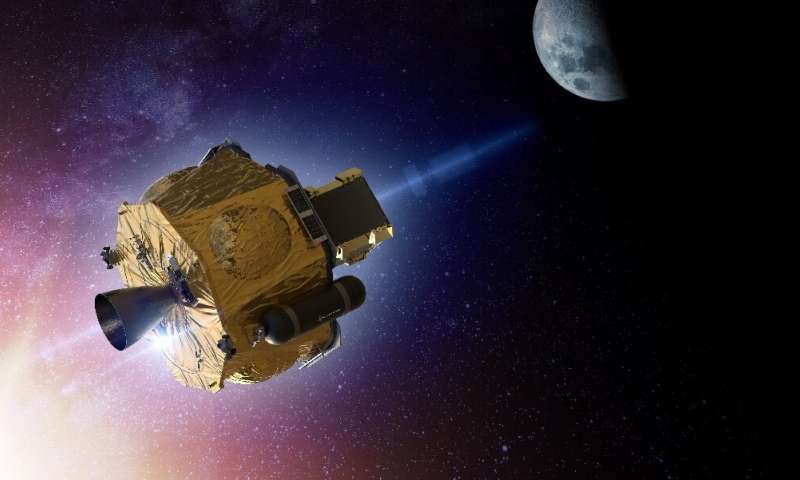
Can a small American aerospace company get to Venus before NASA returns to our superheated planetary neighbor?
That's what Peter Beck, the CEO of Rocket Lab, is hoping as he sets his sights on launching a low-cost probe in 2023.
Over the past decade his company has become very good at putting satellites in to orbit—and his dream of taking the next step, an interplanetary mission, has received a shot of adrenaline recently with the surprising discovery of a gas linked to living organisms in Venus's corrosive, sulfuric atmosphere.
"What we're looking for on Mars is signs of previous life," Beck explains.
"Whereas Venus, it's signs of potential life now."
With its hellish landscape, Venus has been largely neglected by the major space agencies since the 1980s in favor of the Solar System's more distant bodies.
Dozens of missions have notably been sent to Mars seeking signs of ancient microbes.
But the discovery by Earth-based radio telescopes of a gas called phosphine in Venus' atmosphere, reported on September 14, sparked a new wave of enthusiasm among scientists who had for years defended the hypothesis that tiny organisms could live in the planet's clouds.
Phosphine isn't definitive proof of life. But it is possible its presence is linked to living organisms, as it is on our planet.
The finding led NASA to declare it was time to once more prioritize Venus.

Beck, however, has always been in the pro-Venus camp, and for two years has been contemplating sending an entirely privately-funded probe there, he said.
He calculated, with the help of a Ph.D. student, that a small satellite called "Photon" that Rocket Lab developed in-house could be adapted into a spacecraft for an interplanetary voyage.
Such bids have historically been the domain of national space agencies, given the enormous costs involved—but Beck thinks he has developed a budget solution.
"I would expect a mission to Venus to be sort of $30 million," he told AFP by video from Auckland, New Zealand.
"When you can measure interplanetary missions in tens of millions of dollars instead of billions, and months instead of decades, the opportunity for discovery is just incredible," he said.
Free-falling
Rocket Lab's specialty is sending small satellites into Earth orbit with its small 18-meter high rocket—a highly lucrative market in recent years as demand for microsatellites has exploded.
The company's Venus probe will be very small, weighing around 80 pounds (37 kilograms) and just a foot (30 centimeters) in diameter.
The trip from Earth will take 160 days, then Photon will launch the probe into Venus' clouds, where it will take readings as it falls, without a parachute, at almost 25,000 miles per hour (11 kilometers per second).
The probe will have between just 270 and 300 seconds to analyze an atmosphere that is almost a hundred times denser than Earth's before it disintegrates or crashes on the planet's fiery surface, where temperatures are hot enough to melt lead (900 degrees Fahrenheit, or 480 degrees Celsius).

The hardest part is deciding on the scientific instrument: what molecules should it look for?
Miniaturization is another problem. The probe will need to weigh seven pounds (three kilograms), which some experts doubt is possible, but Beck disagrees.
Rocket Lab will need help from leading scientists, and has already recruited MIT astronomer and planetary scientist Sara Seager.
The adventure is the latest chapter in a new era of space exploration fuelled not by governments but by individual curiosity and ambition, one that so far has been best symbolized by Elon Musk, the iconoclastic founder of SpaceX.
SpaceX revolutionized the sector through its reusable rockets that have now sent astronauts to the International Space Station, and has its sights set on colonizing Mars.
NASA is no longer afraid to subcontract missions to privateers, and Rocket Lab will be paid $10 million to send a microsatellite into lunar orbit in 2021.
As for Venus, Beck would like to offer his services to NASA.
The space agency is considering returning to Venus, but not until 2026 at the earliest. Its last Venus orbiter was Magellan, which arrived in 1990, but other vessels have made fly-bys since then.
"We want to do many, many missions a year," said the young CEO.
Explore further
© 2020 AFP
Citation: Back to Venus: Upstart company wants to beat NASA in search for life (2020, September 25) retrieved 25 September 2020 from https://ift.tt/33WCQli
This document is subject to copyright. Apart from any fair dealing for the purpose of private study or research, no part may be reproduced without the written permission. The content is provided for information purposes only.
"back" - Google News
September 26, 2020 at 12:58AM
https://ift.tt/33WCQli
Back to Venus: Upstart company wants to beat NASA in search for life - Phys.org
"back" - Google News
https://ift.tt/2QNOfxc
Shoes Man Tutorial
Pos News Update
Meme Update
Korean Entertainment News
Japan News Update
Bagikan Berita Ini














0 Response to "Back to Venus: Upstart company wants to beat NASA in search for life - Phys.org"
Post a Comment